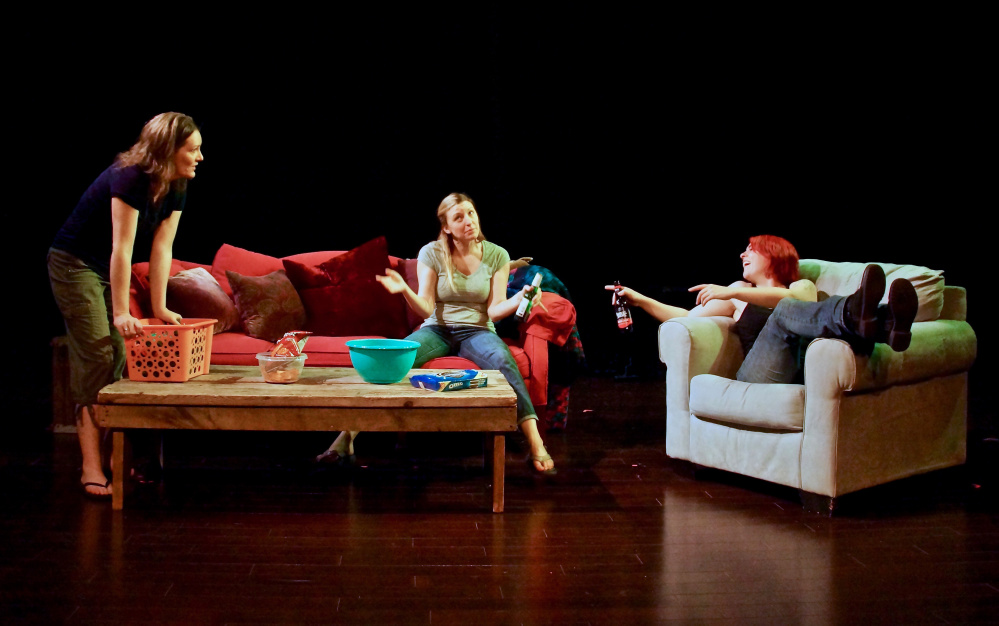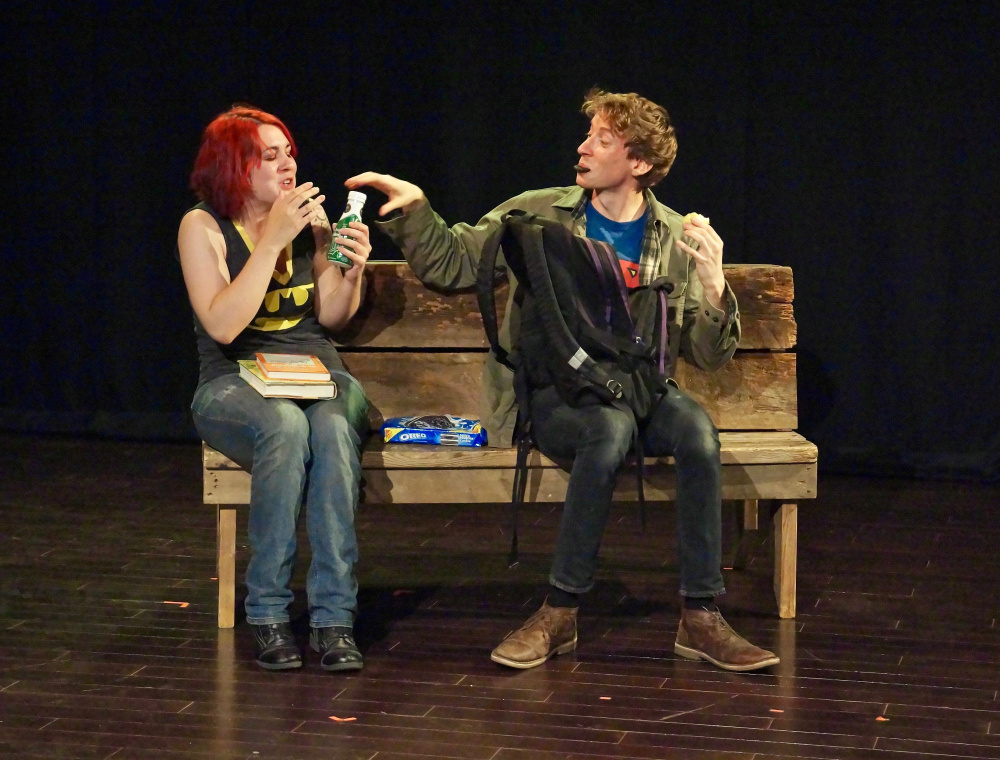Hal Cohen’s “Intervention” is a study of dualities — of humor and tragedy, love and rejection, sobriety and addiction. The play begins in San Francisco’s Golden Gate Park some time in the present day, as two young people meet, flirt and begin to do gentle battle as a way to spark a relationship.
Dennis (Thomas Ian Campbell) is a student — an aspiring one when it comes to college, but a student of life for sure — brimming with trivia about popular culture in what seems to him the too-distant past (the ’70s to the ’90s). Sam (Aileen Andrews) is the youngest of three sisters, an adult eager to slide out from her older siblings’ shadows, but ultimately too vulnerable to relinquish their care.
It’s a promising start, though the play quickly reveals everyone’s imperfections, including the substance abuse that has plagued the sisters’ family. Cohen is a physician, and his understanding of the health effects of substances from sugar to alcohol and drugs informs his work. He’s unafraid to reveal how the medical community has contributed to our present opiate abuse crisis, which has ruined lives, broken families and led to so many deaths.
As with his play “Leonora Rabinowitz, I Love You,” that knowledge lends this play authority and heft, and it never devolves to exposition or didactic preaching. Rather, the lessons come from the dialogue and the story. “I don’t remember it as Mom getting drunk,” Sam tells her sisters (Sarah Barlow as the eager-to-control eldest, Mel, and Anna Gravel as peace-making middle child, Terry) as they discuss their mother at her funeral. “I remember it as Mom getting sick.”
Despite its heavy themes, “Intervention” is funny, too, and the tight weaving of humor and drama recalls the best sitcoms of an earlier era — the acting is that good. The Portland Ballet Studio Theater’s black box is an ideal venue for the production’s intimate story, and the minimalist approaches from set designer Steven Leighton and light designer Michaela Denoncourt Wirth take full advantage of it.
There is more than one addict in “Intervention,” but only one who will cop to it. Dennis claims to be a casual, controlled user of heroin and campaigns diligently for the notion. Cohen has done his homework. There are layers and layers of details in this play; facts, factoids and misconceptions fly from a variety of sources, some more dependable than others.
But he isn’t satisfied with leaving “Intervention” in “All in the Family” territory. The comfortable and enjoyable if nerve-racking early scenes give way to a much darker humor and an ominous, tour de force quasi-monologue by Leighton, as a figure named Will who solemnizes Dennis’s affliction.
“Shut up, listen, with your eyes, with your eyes!” Will insists, repeating “shut up” in a way that invokes despair, yet, uncomfortably, tickles the funny bone. It makes for a formidable and sorrowful production that shouldn’t be missed.
Daphne Howland is a freelance writer based in Portland.
Send questions/comments to the editors.



